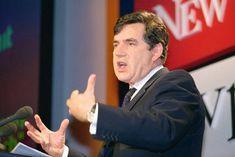
Yesterday's Downing Street summit meeting with aid agencies, scientists, supermarkets and farmers ended with prime minister Gordon Brown pledging to examine the impact of biofuels on world food prices.
Brown was reacting to concern that too much agricultural land is being taken up by biofuels production when there is a shortage of food being produced. He promised a selective approach from his government to its support of biofuels projects.
Research released yesterday by MySupermarket.co.uk, a website that tracks prices at the three biggest grocery chains - Tesco, Asda and Sainsbury's - also showed that, due to the supply shortage, millions of families in the UK face the highest food inflation in a generation. The average annual family food bill, it said, has rise by £780 in the last year, and will continue to increase.
The government will donate £30 million to the World Food Programme, which it has been decided is addressing a "food crisis", and Brown called for international action, calling on the world to rise to the “moral challenge” of tackling food prices that, he said, are at their highest since the end of the second world war.
Brown illustrated the dilemma facing his government, by on one hand acknowledging the impact on world food prices and the environment, having on the other implemented the Renewable Transport Fuel Obligation, which requires petrol and diesel to contain a proportion of biofuels, only a few days ago.
"If our UK review shows that we need to change our approach, we will also push for change in EU biofuels targets," he said.
"The World Health Organisation now views hunger as the number one threat to public health across the world, responsible for a third of child deaths and 10 per cent of all disease.”
The meeting aimed to formulate a plan to present to the EU and the G8 over the summer and a special meeting of the United Nations in September.
The World Bank says overall food prices have increased 83 per cent in the last three years. It has warned 100 million people in poor countries could be pushed deeper into poverty by spiralling prices.



